Reviews
Chris Marker
France, 1962
Credits
Review by Evan Kindley
Posted on 16 August 2010
Source
Categories Favorites: Time Travel
Chris Marker was born in 1921—he celebrated his 89^th^ birthday a week ago, as of this writing (many happy returns to him, if he’s out there). Before you read on any further, dear reader, think about that for a second! For those rare few, like Marker, blessed with sufficient longevity and a sensitivity to the flux of historical change, life itself is a form of time travel. Marker was born into a world that feels four or five removes away from ours at least: the period entre deux guerres, with the first World War recently ended and second already heaving into view. As a young man he studied philosophy under Jean-Paul Sartre, and in early adulthood showed his opposition to the Vichy regime by joining the maquis, an armed guerrilla resistance group. After the war, he took up film, making a series of innovative short documentaries on mostly political subjects. This work culminated in 1963’s Le joli mai, a 180-minute documentary in which dozens of ordinary Parisians reflect on the state of the nation at the end of yet another protracted conflict: the Algerian War, which had been ongoing in one form or another since 1954.
The sum total of Marker’s first forty years on this planet, then, had been coincident with war or its immediate aftermaths, and this gave him a special interest in events that impress, scar, or otherwise mark the hapless human beings who experience them. (It’s worth noting in passing that “Marker” is an assumed name—the director was born Christian François Bouche-Villeneuve and renamed himself, according to legend, after the Magic Marker, though it’s not hard to read other, less whimsical meanings into this nom de plume.) Thus, La jetée’s narrator introduces the film to us as “the story of a man marked by an image from his childhood”; soon after, we’re told that “nothing sorts out memories from ordinary moments. Later on they do claim remembrance when they show their scars.” While wars are of course not the only historical events that mark people forever - or mark out for them the transitions from one era to another - they have do a particular facility for this, one that can easily be exploited by storytellers: how many other phenomena engage whole populations, disrupt ordinary ways of life, and produce so many dramatic situations suitable for fiction? War reorients our sense of time completely; the stark temporal categories of “wartime” and “peacetime” are perhaps all the social world can offer to match the basic ontological binary of “then” and “now.” A filmmaker marked by war from the beginning can hardly help realizing this, but it takes a kind of genius to make it into a principle of construction.
Upon its initial release in 1962, La jetée appeared out of character for Marker: a 29-minute sci-fi “ciné-roman” told entirely in still images with voiceover commentary, the film was influenced more by comic books, Pathéorama film strips and the nouveau roman of Alain Robbe-Grillet and Nathalie Sarraute than it was by the traditional conventions of either narrative film or documentary. Recycling images of the devastation of Paris wrought by the first two world wars, Marker imagines a third, after which a handful of human survivors settle in underground galleries and begin a series of experiments designed to recover resources necessary for the world’s regeneration. “The human race was doomed. Space was off limits,” the survivors decide. “The only link with survival passed through time. A loophole in time, and then maybe it would be possible to reach food, medicine, energy.”
To this end, a nameless male protagonist with an unusually vivid memory of prewar France is selected as a guinea pig for an exploratory venture into time travel. In some ways we’re in conventional mid-century sci-fi territory here, where mad scientists conduct sinister experiments on unknowing or unwilling subjects—the time travel procedure even involves a strange insectoid eye mask that may have been inspired by 1958’s The Fly. But Marker is also processing his misgivings about the extreme political situations he’s known firsthand. The disorientation of being, by nationality if not by opinion, on the “right” side of one conflict and the “wrong” side of the next informs La jetée’s politics, which are doubly overdetermined by the memory of the French Resistance against fascism and guilt over imperialist aggression in Algeria. This conjuncture helps explain the odd ambivalence of the film’s treatment of the scientists: while their mission to ensure the survival of the human race is hard to quarrel with, their methods recall controversial French tactics in Algeria as much as they do those of the Third Reich, including invasive surveillance (“The camp police spied even on dreams”), brainwashing (“First, the present and all its supports must be stripped away”), and torture. Lest the critique seem too one-sided, however, the scientists could just as easily stand in for the maquis, or the guerrilla rebel forces of Algeria, as for an oppressive nation-state. While Marker is obviously a man of leftist sympathies, it’s telling that La jetée doesn’t glorify underground resistance; on the contrary, it’s coldly attentive to the violence and coercion such radical political activities can often involve.1
The scientists’ first experiment sends our protagonist back in time to rendezvous with a woman from his strongest childhood memory, of witnessing an assassination on an open-air observation platform at the Orly airport, the “jetty” of the film’s cryptic title.2 This location, importantly, is not itself a site of departure, but rather a still point from which others’ comings and goings are passively contemplated. The jetty thus serves as a figure for any given moment in time, from which it is always possible to regard both past and future, but never actively move into either, making it a perfect fit for La jetée, which is passive rather than active: it could even be argued that its genre is less “time travel” than “time observation” (or a “passion” as opposed to an “action film”). Where most films on the subject afford a fantasy of more movement - being able to traverse time as well as space - La jetée perversely offers its audience less: here, not even the images move. In Marker’s voyeuristic universe we’re always stuck between stations, no longer where we started but not yet arrived.
In its middle section La jetée shifts into an involving love story that also functions as a miniature documentary of Paris in the early 1960s, a kind of complement to Le Joli mai. Unlike many filmmakers who attempt the time travel genre, Marker’s not really interested in either depicting the historical past or imagining life in the future, but rather in using the formal possibility of inhabiting other time periods to set off the uncanniness of the present. He places markers, if you will, on either side of his historical moment, like a framer masking a photo: if we could live either before or after now, he asks, what would now look like? Photographs of ordinary street life in Paris circa 1962 highlight details that are now almost as exotic to us as they would be to Marker’s time traveler. This is another side-effect of Marker’s choice to tell the story through stills: the ascetic refusal of the reality effect induced by persistence of vision - with the exception of one brief, justly celebrated sequence - keeps us from forgetting that La jetée, like any film, is necessarily a document, one that forces us to confront not only the past but also our eternal isolation from it.3
The film’s last act is its most minimal and disturbing. Having proved time travel possible, the scientists now send our hero into the future to bring back the secret of human survival. There he meets “people of the world to come” with unexplained doodads on their foreheads (possibly cameras, though they also suggest the Christian markings for Ash Wednesday and the South Asian bindi; when dealing with a globetrotter with as wide a frame of reference as Marker, no stone can be left unturned). These inhabitants of the future view him and the era he represents with a haughty disdain - “Obviously, they rejected these scoriae of another time” - but agree to help only because they recognize the past of their own race in his pitiful condition. At the risk of reducing Marker’s suggestive parable to a simple allegory, I find it tempting to view these technologically advanced, grudgingly altruistic people of the future as representatives of postwar America, whose role in defeating the Nazis and rebuilding European societies and economies were celebrated and resented in equal measure by many French citizens. Just as the French had to learn to stop worrying and love laissez-faire, in La jetée the people of the future make their visitor “recite his lesson: since humanity had survived, it couldn’t refuse to its own past the means of its own survival. This sophism was taken for Fate in disguise. They gave him a power unit strong enough to set all human industry in motion again.” What could this miraculous “power unit” be but the ethics and infrastructure of American-style capitalism? (The presence of William Klein, who would go on to direct the scabrous anti-American satire Mr. Freedom seven years later, among the people of the future reinforces this theme.) Having extracted this tribute from him, they agree to help, and even offer him a permanent place among them. But Marker’s protagonist refuses this invitation to live in the New World of the future; “rather than this pacified future, he wanted to be returned to the world of his childhood”—the backward, war-wracked world, as I read it, of Europe. This sets up the film’s hyper-elegant ending, a thing of narrative beauty self-sufficient (and, for first-time viewers, surprising) enough not to need further comment here.
For such a singular and in many ways difficult film, La jetée has had an extraordinarily fecund influence: projects inspired by Marker’s accomplishment include Thierry Kuntzel’s reassemblage La rejetée, Hidekazu Minami’s interactive “Jetty” website), Mamoru Oshii’s sci-fi policier The Red Spectacles,4 Mark Romanek’s music video for David Bowie’s “Jump They Say,” and, of course, Terry Gilliam’s big-budget 1995 remake Twelve Monkeys (on which more anon). This continuing relevance is certainly impressive, but in my view the single most remarkable thing about La jetée may be the way it resists being detached from its specific formal and historical context: the way it opposes, against all odds, the involuntary displacements of time. Where other filmmakers dream of a world where time travel is possible, Marker longs for one where it wouldn’t be necessary, where one can just stay still, and time never advances at all.
- It’s probably a good idea to remember that “the Left” itself, as both a practical coalition and a body of doctrine, is something that changes radically over time, a fundamental point explored at considerable length in Marker’s 1977 documentary A Grin Without A Cat.↩
- Just as the title Le joli mai conjures up a more picturesque experience than that film ultimately delivers, La jetée’s title is a piece of misdirection, translating literally to The Pier and thus evoking a placid nautical setting. But for his “jetty” (with perhaps a hint of the modern English word “jet” hovering in the middle distance), Marker selects what was then an ultra-modern reimagining of the very idea of a “pier” (the airport at Orly having been built in 1932, when he was only eleven years old) in order to underline La Jetée’s historicity, as well as his own. Consider that commercial air travel was also not possible on anything like the scale of the 1960s in the world of Marker’s childhood; from the right perspective, it could easily seem just as fantastic as time travel. For further speculations on the film’s title, see Bruce Kawin, “Time and Stasis in La jetée”: “His is not the ‘jeté’ [leap] of a dancer - that word is masculine - but that of a projectile, something thrown (from the verb ‘jeter,’ to throw or cast), and its symbol is the jetty or concourse … He is not a leaper, but someone who is thrown. He has found, in the ‘air,’ no real freedom, no defiance of gravity … ‘Le jeté’ is the romantic aspiration, ‘la jetée’ the political and scientific sets of limits.” Film Quarterly vol. 36, no. 1, Fall 1982, p. 16.↩
- At the same time, of course, the story does draw us in; Marker’s plot is in fact a small miracle of managed expectations. Much has been made elsewhere of La jetée’s debt to another masterful suspense film, Alfred Hitchcock’s Vertigo (then only four years old and not yet an acknowledged classic; in another coup de temps, Marker makes a little wager on the future course of cinema history). Here I’d like to note only that Vertigo, a subjective film if ever there was one, is about the desire for a kind of time travel and its impossibility: Scottie wants to go back in time and be with Madeleine again, and he can’t. La jetée, on the other hand, is about forced time travel; the protagonist is not recreating the past of his own volition, but is made to return to it whether he wants to or not (until the film’s final moments, when he chooses to remain in the past rather than the future). It’s not about obsession, but necessity: this is one way, anyway, to trace the distance between Hitchcock and Marker.↩
- The Japanese have proven especially receptive to the film; there is even a La jetée-themed bar in Tokyo, an homage that Marker has acknowledged with pleasure on a number of occasions.↩
More Favorites: Time Travel
-

Bill and Ted’s Excellent Adventure
1989 -
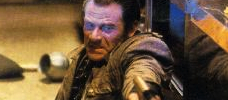
Trancers
1985 -
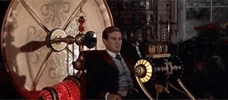
The Time Machine
1960 -

Groundhog Day
1993 -

Warlock
1989 -

The Navigator
1988 -
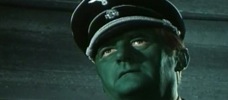
Tomorrow I’ll Wake Up and Scald Myself with Tea
1977 -
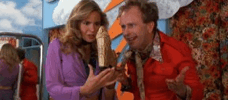
The Spirit of ‘76
1990 -
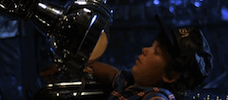
Flight of the Navigator
1986 -
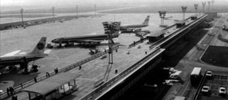
La jetée
1962 -
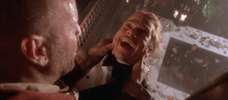
Twelve Monkeys
1995 -

Beastmaster 2: Through the Portal of Time
1991 -
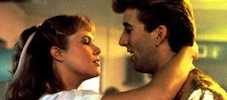
Peggy Sue Got Married
1986 -
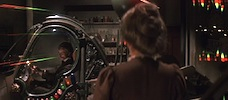
Time After Time
1979 -
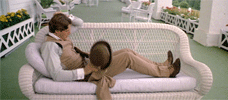
Somewhere in Time
1980 -
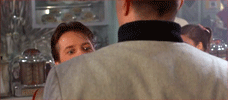
Back to the Future
1985 -
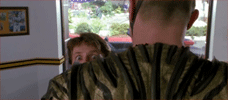
Back to the Future Part II
1989 -
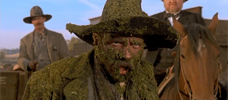
Back to the Future Part III
1990 -
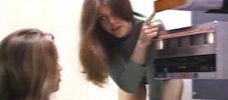
Idaho Transfer
1973 -
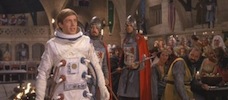
Unidentified Flying Oddball
1979 -
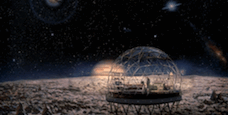
Slaughterhouse-Five
1972 -

The Lake House
2006 -

Time Bandits
1981 -
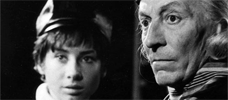
Doctor Who
1963–present -
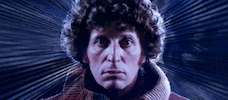
Doctor Who
1963–present
We don’t do comments anymore, but you may contact us here or find us on Twitter or Facebook.



